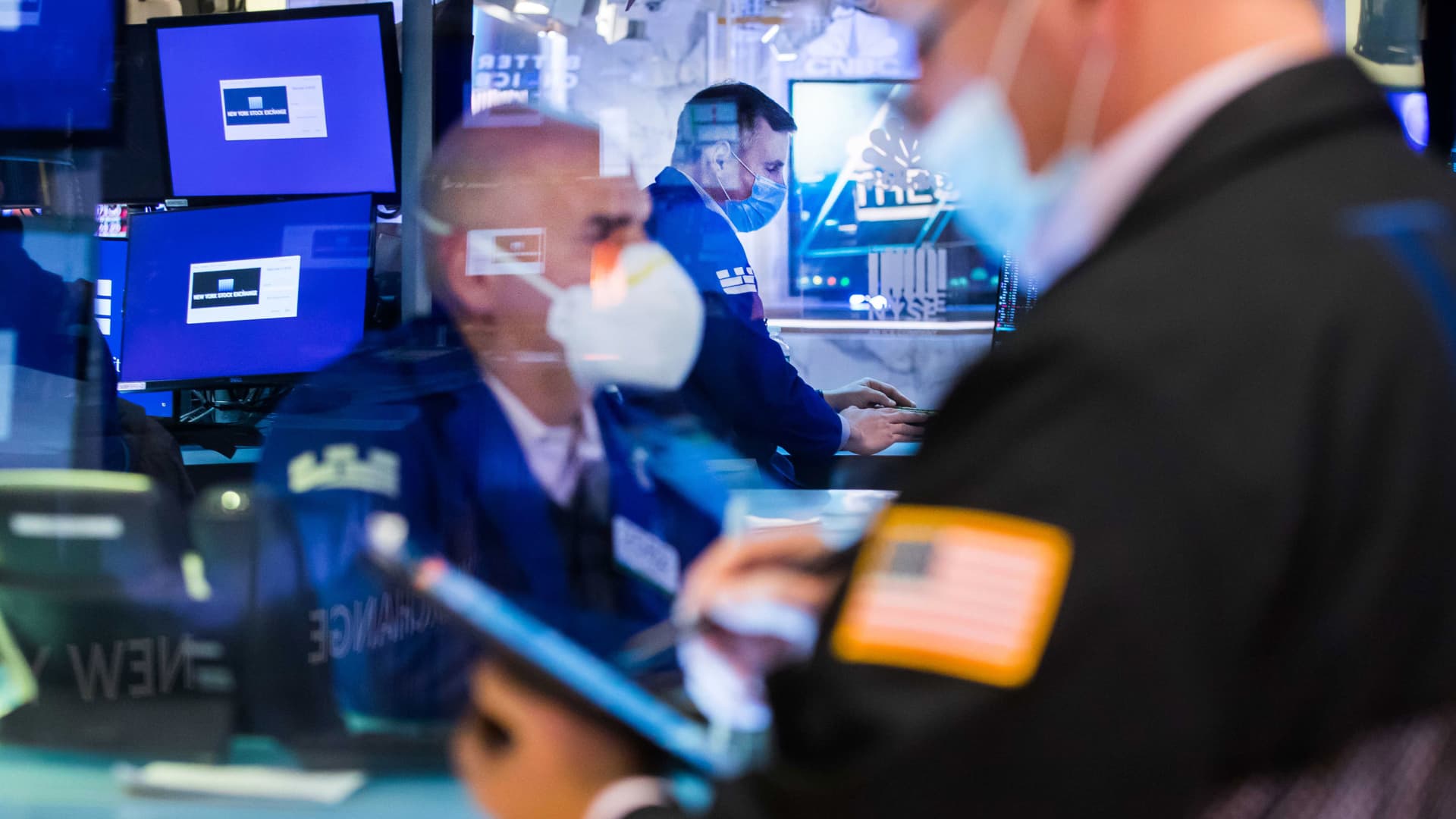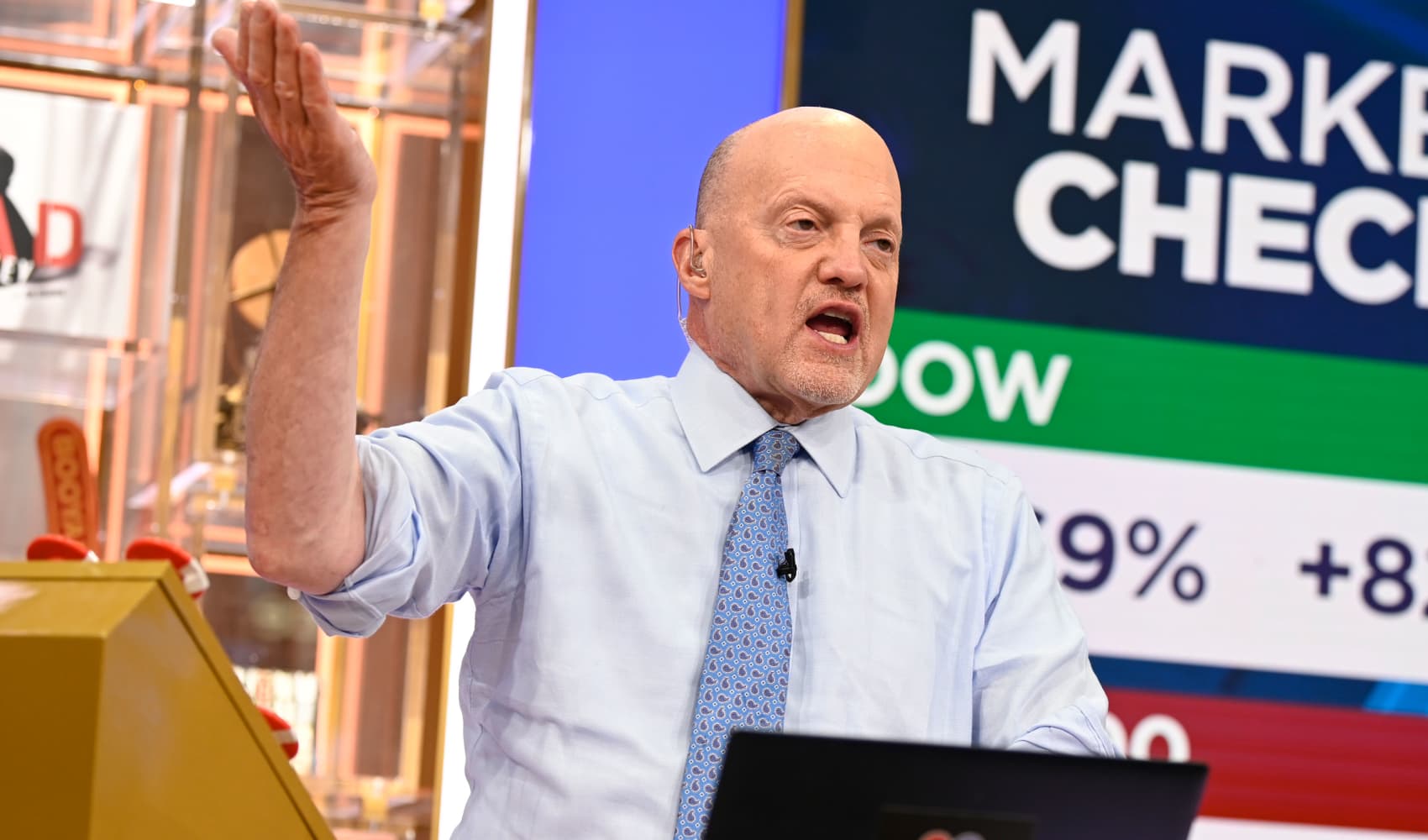
- The U.S. Federal Reserve on Wednesday struck a hawkish tone as it assessed how to tackle inflation running at a 40-year high.
- The market has been mired in volatility so far this year as investors attempt to gauge the pace and extent of monetary policy tightening.
- Speaking to CNBC's "Squawk Box Europe" on Thursday, Smead argued that the Fed's inaction over the course of the last year, based on its belief that spiking inflation was "transitory," had led the market into complacency.

The market has been in denial about the "inflation wolverine" and could now face multiple bear markets and "wild" price action in the coming years, according to Bill Smead, chief investment officer at Smead Capital Management.
The U.S. Federal Reserve on Wednesday struck a hawkish tone as it assessed how to tackle inflation running at a 40-year high. The central bank indicated that a first hike of interest rates could be due in March.
Get Tri-state area news and weather forecasts to your inbox. Sign up for NBC New York newsletters.
The market has been mired in volatility so far this year as investors attempt to gauge the pace and extent of monetary policy tightening.
As of Wednesday's close, this month has been the worst January on record for the tech-heavy Nasdaq 100, the worst since 2009 for the S&P 500 and the worst since 2016 for the Dow Jones Industrial Average.
Speaking to CNBC's "Squawk Box Europe" on Thursday, Smead argued that the Fed's inaction over the course of the last year, based on its belief that spiking inflation was "transitory," had led the market into complacency.
Money Report
"The market has been in denial about what we call 'the inflation wolverine.' They trotted this out in the pandemic, raising inflation as a way to heal the economy like a friendly puppy dog, and inflation is not a friendly puppy dog and you've got a confluence of dynamics, certainly in the United States," he said.
In particular, Smead noted that since the onset of the pandemic, a disproportionately large quantity of people between the ages of 30 and 45 in the U.S. had grown to covet owning houses and cars, and living outside the main coastal cities and commercial hubs. He argued that this paradigm shift will not be arrested by this "late attack" from the Fed.
"In other words, they let this go on too long, and the market's just coming to terms with that. They're all in denial and they're now just coming to terms with the beginnings of eliminating their denial," he said.
Smead drew parallels between the current sequence of macroeconomic events and the early 1970s succession of the Vietnam War, President Lyndon B. Johnson's "Great Society" — a series of ambitious domestic programs aimed at eradicating poverty and inequality and improving the environment — and the Arab Oil Embargo of 1973.
"We had the pandemic war, we had Biden's Great Society and then the Saudi spring cut the legs off the U.S. oil industry by taking the price to zero in April of 2020," Smead said.
"And then you pile this high number of people forming households in right behind that, and a shortage of houses and a shortage of cars, and that is the classic definition: Too many people with too much money chasing too few goods."
Although his firm does not attempt to time the market in the short term, he suggested that elevated price-to-earnings ratios, the extremely high valuations for growth stocks and other forms of "financial euphoria" mean the market could be headed for an "extremely difficult period."
"As a firm, we're posturing that this will be like the 1970s, which was a nasty bear market in 73/74 and then it culminated with another bear market in 81/82, and there were only certain ways to make money, and they were all pretty much attached to making money from inflation," he said.
"In other words, turn the thing that's the negative into the positive, and you can see that in oil prices, you can see that in the price of homes."
Smead contended that as pent up savings are channeled toward Main Street rather than Wall Street, continuing to exert upward pressure on consumer prices, it will be stocks that benefit from inflation which take the lead.
"The problem is there are so few of those to go around, and they've been so neglected by all this ESG feather dust that it's going to be kind of wild," he said.
"We could see some real wild price action, for example, in the oil companies that are actually trying to make money in this."
However, Smead's gloomy outlook is not shared by all. BNP Paribas Chief Global Economist Luigi Speranza said that while Fed Chair Jerome Powell's hawkishness now has the French bank pricing in as many as six rate hikes this year, it was not yet sufficient to derail its bullish outlook for U.S. equities if earnings growth remains strong.






